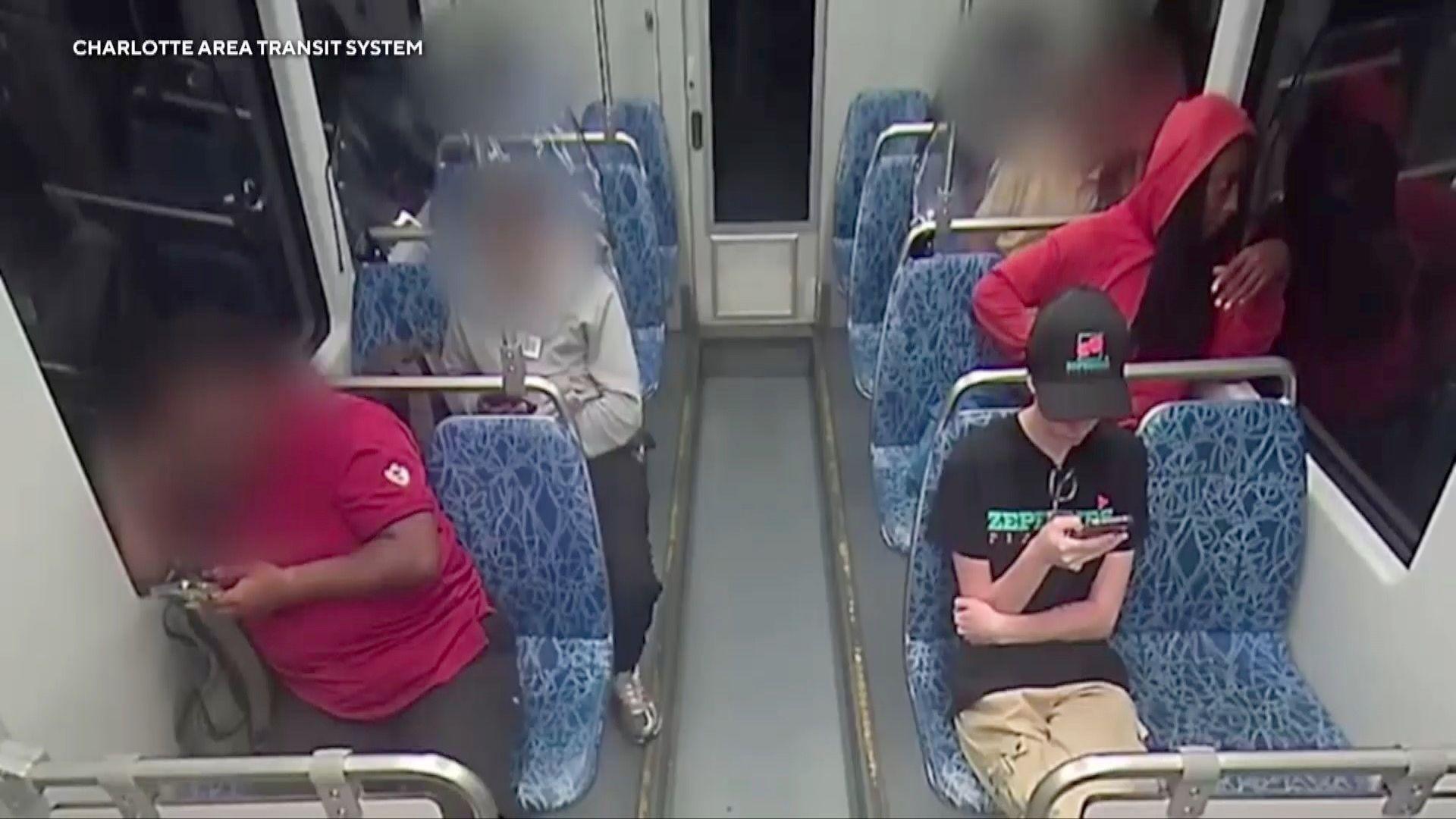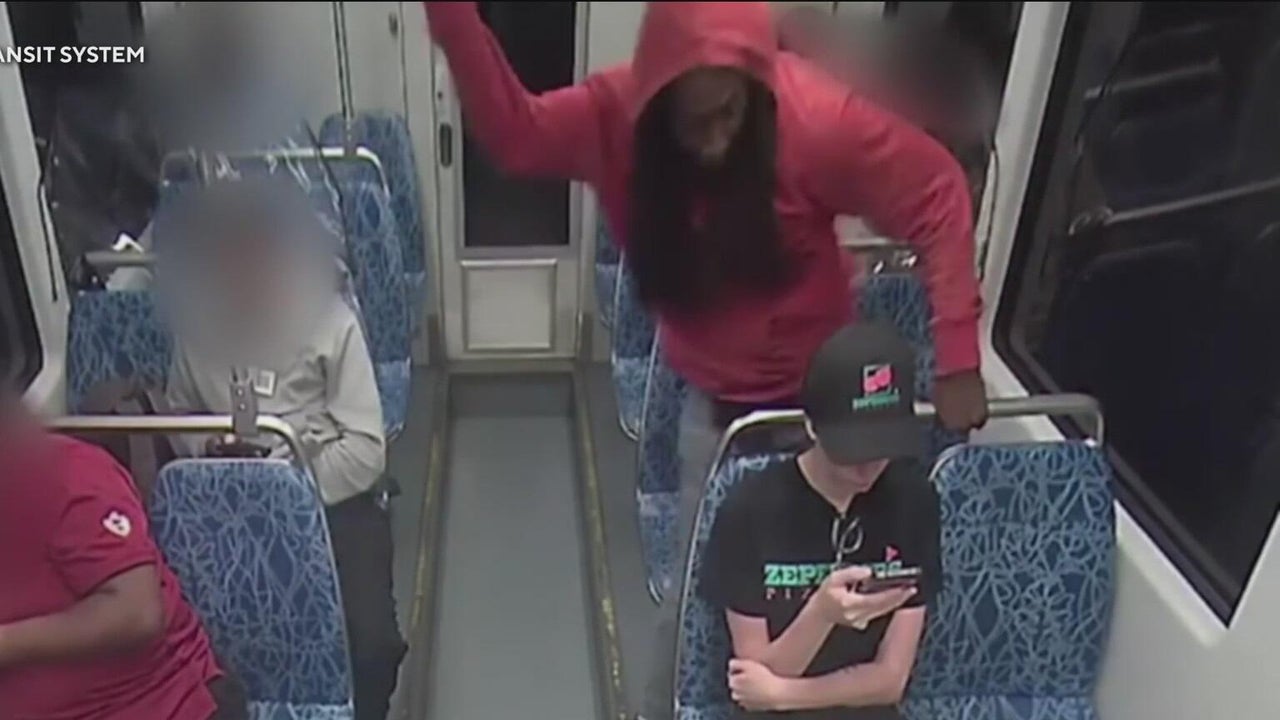When 23-year-old Ukrainian refugee Iryna Zarutska boarded a Charlotte light rail train on the evening of August 22, she had every reason to feel hopeful about the life she had built since fleeing the war in her homeland. Known for her creativity, compassion, and radiant smile, she had quickly become part of her North Carolina community. But in a devastating turn, her journey ended that night in an incident that has shaken Charlotte and reignited national debate about crime, public safety, and the support systems for people struggling with mental health.
A Life Interrupted

Iryna had escaped Ukraine with her mother, sister, and brother in 2022 as the war with Russia intensified. According to her family’s tribute, she embraced her new surroundings with optimism, finding work at Zepeddie’s Pizzeria, enrolling at Rowan-Cabarrus Community College, and nurturing a lifelong love for animals with dreams of becoming a veterinary assistant.
Her obituary describes her as “a talented artist” who had graduated from Synergy College in Kyiv with a degree in Art and Restoration. Friends and family remembered how she would gift her artwork, design eclectic clothing, and spend hours sculpting. For neighbors, her presence was equally memorable—often seen walking their pets, always greeting them with warmth.
“She just had a heart of gold,” a family friend told WCNC. “Even after everything she endured in Ukraine, she was kind, supportive, and uplifting.”
The Incident on the Train

Shortly before 10 p.m. on August 22, Iryna entered a train car in Charlotte’s South End neighborhood, a vibrant district known for its restaurants, shops, and breweries. Within minutes, she became the victim of an unprovoked attack.
The suspect, 34-year-old Decarlos Brown, was taken into custody and charged. Authorities confirmed the FBI is assisting in the investigation. A local judge has since ordered Brown to undergo a 60-day evaluation at a medical facility.
Charlotte Mayor Vi Lyles released a statement expressing condolences to Iryna’s family and emphasizing the need for systemic improvements, particularly in mental health support. “This tragic situation sheds light on how our community safety nets are not strong enough to help those who need it most,” she said.
Court records show Brown had a long history of legal trouble, including prior convictions for robbery and larceny. Family members revealed to CNN that he had struggled for years with serious mental health conditions, including schizophrenia. His sister, Tracey Brown, said he often experienced paranoia and hallucinations.
After serving more than five years in prison, Brown was released in 2020 but, according to relatives, was never the same. His mother, Michelle Dewitt, described numerous attempts to get him long-term care, including an involuntary commitment order, but said systemic barriers prevented effective treatment.
Despite those efforts, Brown ended up homeless, living intermittently in shelters. In the days leading up to the Charlotte tragedy, his mother recalled him stopping by her house after being discharged from a hospital. “I didn’t believe it when I heard the news,” she said. “That didn’t sound like the son I knew.”
Political Repercussions

The incident quickly became the subject of political debate. Former President Donald Trump denounced the attack, describing the suspect as a “madman” and calling for tougher measures against violent crime in urban areas. He offered condolences to Iryna’s family and stressed the need for stronger public safety policies.
Republican officials in North Carolina criticized local leadership, arguing that repeat offenders are often released without facing appropriate consequences. Mecklenburg County’s Republican Party announced a press conference highlighting what they called “failures” in Charlotte’s justice system.
In response, Mayor Lyles emphasized that homelessness and mental illness should not be criminalized. “Unhoused individuals are far more likely to be victims than perpetrators,” she noted, urging a bipartisan solution to ensure proper treatment for those with severe conditions.
The Mental Health Crisis

Iryna’s case has drawn attention to the intersection of public safety and mental health policy. Experts point out that people with untreated psychiatric conditions can sometimes act unpredictably, especially without stable housing or access to consistent care.
Tracey Brown described her brother’s struggles: “He truly believed the government had implanted something in him. He thought people were reading his mind. He was battling demons no one else could see.”
She added that her family sought help but often ran into walls. “The system failed him,” she said, a sentiment echoed by their mother.
This tragedy has renewed calls for reform in how the U.S. manages community-based mental health support, especially as homelessness rates rise in cities across the country.
The Community Responds

In Charlotte, the outpouring of grief was immediate. Zepeddie’s Pizzeria posted on social media: “We lost not only an incredible employee, but a true friend. Iryna, we miss you more than words can say.”
Her former college released a statement: “We are heartbroken to hear about the passing of one of our former students, whose life was cut short in this tragic event.”
Neighbors remembered her generosity, describing how she always stopped to chat, often helping with pets or errands. Friends highlighted her resilience, noting how she had endured the war in Ukraine and still managed to bring joy to others.
“She survived bombings and fear back home, only to lose her life here,” one family friend said with sorrow. “It’s just heartbreaking.”
Broader Crime Trends in Charlotte

The Charlotte-Mecklenburg Police Department reported in July that violent crime in the city had decreased by 25% during the first half of 2025 compared to the previous year. Overall crime was down 8%. Deputy Chief Ryan Butler praised officers for their efforts to engage communities and prevent violence.
Still, high-profile cases like Iryna’s shape public perception and fuel political debate, particularly around whether existing systems—judicial, mental health, or law enforcement—are adequate to ensure safety.
A Symbol of Hope and Loss

Iryna’s story resonates beyond Charlotte. To many, she symbolized resilience: a young woman rebuilding her life after escaping a war zone, quickly mastering English, and contributing to her adopted community.
Her creativity, compassion, and dedication to animals inspired those around her. Family and friends now remember not only the tragedy of her death but also the light she brought to their lives.
“She had so many dreams,” her family wrote in her obituary. “She wanted to become a veterinary assistant, continue her art, and share her joy with the world. We will carry her spirit with us always.”
Looking Forward
The incident has spurred renewed dialogue about how to prevent similar tragedies. Among the proposals are:
-
Stronger collaboration between courts and health systems to ensure individuals with severe mental illnesses receive treatment.
-
Enhanced safety measures on public transit, including increased law enforcement presence.
-
Community-based solutions addressing homelessness, aiming to provide stable housing and long-term care.
Mayor Lyles pledged to increase transit security and called for bipartisan reform: “We need solutions that hold repeat offenders accountable while also ensuring those who cannot access treatment are not left to fend for themselves on the streets.”
Meanwhile, national leaders continue to debate whether incidents like Iryna’s reflect systemic failures in mental health care, criminal justice, or local governance.
Conclusion
The death of Iryna Zarutska has left a community in mourning and sparked national conversations about justice, mental health, and safety in America’s cities. For her family and friends, however, the loss is far more personal. They remember a young woman with immense talent, kindness, and resilience, whose future was tragically cut short.
Her story serves as both a heartbreaking reminder of what is at stake and a call to action: that no one should fall through the cracks of society’s safety nets, and that communities must come together to ensure tragedies like this do not happen again.
